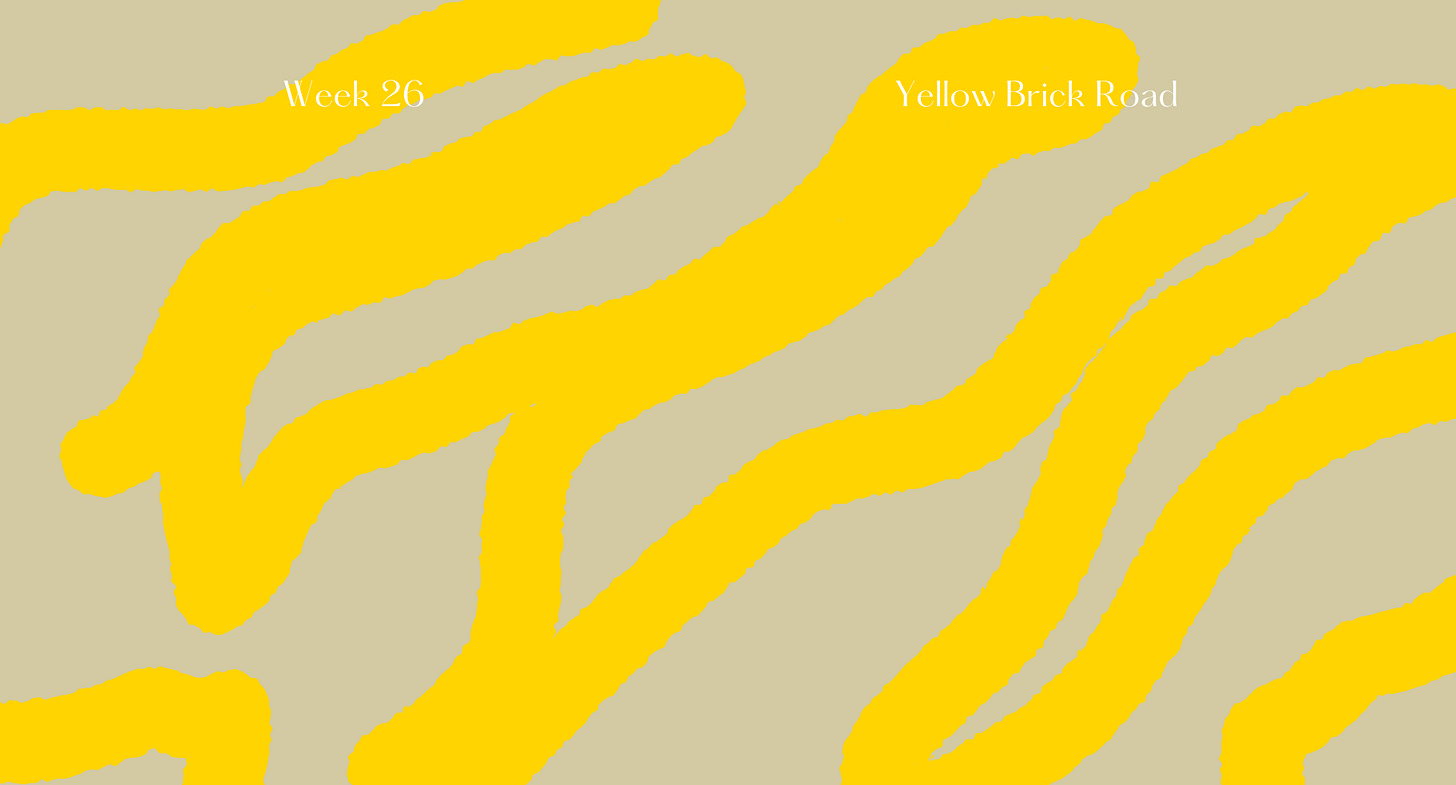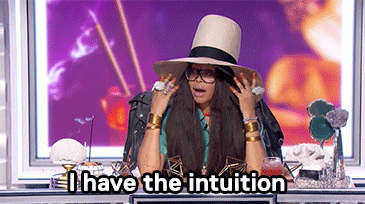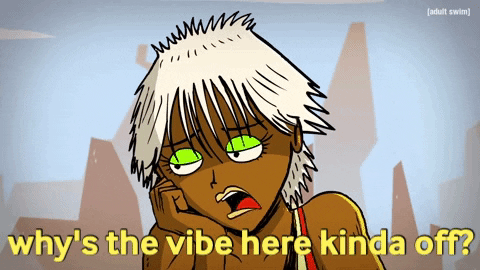Following The Hunch: Identifying Intuition
How to know which voice is worthy of our attention. Yellow Brick Road.
Welcome to Yellow Brick Road, an exploration of the guided path!!
It seems that we have made a dreadful mistake by identifying ourselves exclusively with our consciousness, by imagining that we are only what we know about ourselves. There is much more to us, parts that speak tongues that take some getting used to. To learn their languages, we need to lend a very attentive ear to the strange myths of the mind, and take a careful look at whatever happens, regardless of whether or not it accords with orthodox explanations. For, as Jung says, “It is important and salutary to speak also of incomprehensible things.”
- Lyall Watson
Did you nail the test? Amazing, you’re probably in strong alignment with your intuition! Now, you probably know the true tests of intuition are often make-or-break situations which produce high levels of stress. They have a sense of risk, and can make us doubt whether fear and intuition actually function differently at all.
It seems most people’s reticence to follow their intuitions stems from a concern for the amount of risk involved in trusting it. I would argue that the far greater risk is what we sacrifice in denying our intuition entirely. What we risk in denying the existence of the parts of ourselves cloaked beneath Jung’s “incomprehensible things.”
An Intruder
Last week, I laid in my cushy bed in a quirky Palm Springs rental house, petrified by what I’d just experienced in a dream state. In my sleep, intruders had broken into our home and I had to find an escape. When I woke up, the feeling of impending doom just wouldn’t subside.
Should I get up to check, even if just to assuage my fears? What would I possibly do if there actually was an intruder in the house? I hear footsteps. The light in the hallway turns on. Someone goes into the bathroom. I calm thinking that someone else has clearly been through the house and didn’t cry out for help so we must be okay. I stayed awake until exhaustion overcame my fight or flight response and drifted out of consciousness again.
The next morning, it was time to hit the road and head back to LA for a few days. I turned over to my friend Tarn, who was celebrating her birthday, to congratulate her on another year of life. I also shared that my sleep had been thwarted by a nightmare I couldn’t shake. We decided to hit the road back to LA early to beat any traffic and have a few extra celebratory hours poolside at our hotel. There was just one, teeny, tiny problem presenting itself. Where the rented gray Toyota Tacoma was previously parked stood Tarn, in shock and amazement, leaning on her Away bag for support. Our car had been stolen out of the driveway.
Through the hours of calls to file a police report, to file a report with the rental car company about the police report, and finally get the clearance to rent a new car to get back to LA, I kept coming back to the dream. Of what my intuition had warned me about while I laid in my bed, and someone stole my rented property just beyond a few walls and an unlocked front door.
It Was A Hunch
Before you become aligned, you must identify your active intuition. When do you allow your soft inner voice to speak? When do you shut it down, and why? What happens when you trust a hunch?
Many of us are conditioned to ignore our intuitions early on. To trust and accept the protection of unsafe or inept caretakers, to trust the knowledge of teachers and superiors and elders as absolute truth, and to stick with what we can see. Intuition, in a world that benefits and profits off of our fear and lack of internal compass, is a dedicated practice. The only way to build intuitive resilience and assurance is to flex your intuition like a muscle.
The unraveling of my “true self” seems to be not much more than a series of followed hunches. The practice of following inner guidance is like building callouses to withstand life’s setbacks and trials as you rise in the climb of your life. Tuning intuition is building self-trust. In fact, there’s really not much of a difference between self-trust and intuition at all.
A hunch led me to move to New York, confirmed by a powerful medium I consulted shortly after. A hunch led me to foster a relationship with the most effervescent woman I’d ever seen at a frat party in college, and she would become my best friend and family. A hunch led me to start this newsletter, a transition I fought tooth and nail and ended up being one of the most fulfilling sources of community and creativity to date. The decisions that are most likely to transform our lives beyond recognition will often create the greatest resistance in us.
We use hunches to approach our love interests, to leave toxic work environments before we’re stuck on sinking ships, and to move to new cities. Intuition is often pooh-poohed as a soft concept reserved for mystics, artists, and women - those silly little women - but intuition is so incredibly practical (most of us use it every day without acknowledging its existence). How can you really tell the difference between intuition and worry? The difference between fear and instinct? The answers lies in your willingness to have an open mind, a healthy level of skepticism, and some courage.
It’s complicated, because understanding what is and is not intuition requires listening to yourself - not me. Your favorite tarot YouTuber, oracle cards, and crystals can’t play fill-in for your inner voice, and neither can I. But, I can tell you what deep knowing feels like in the body, how it motivates me, and how to create enough time between feeling and response to notice the shift in cadence from listening to an inner critic to listening to your inner voice.
Feel it out
To know the difference between intuition and worry is to feel the difference. The body tells all. When we are faced with transition, opportunity, and life altering connection, we are likely to experience the weight of that decision physically and viscerally.
When presented with something that is exhilarating and expanding, our chests open, our shoulders pull back, and our chins rise at the prospect of our new life. There may be some fear, but your body and heart are certain of your safety before your mind will be. If you’re unsafe and in a fear-based space, your body might cave into itself, you may become short of breath when speaking about the person or opportunity, you may feel out of your body entirely. This is not insignificant.
When you’re with community, doing things you love, feeling in alignment, take note of what your body feels like. Which parts of you are activated, available, and wanting your attention. Those will sing to you when it’s time to move toward your destiny.
Modes of Curiosity
Intuition delivers information with tenderness and consistency. I find that fear tends to make harsh statements with timelines, heavy expectations, pendulum swings of emotion, and leaves little room for possibility. Intuition is a calm inner voice. It is steady, unwavering, clear, kind, and often curious. Where fear says “We will never receive an opportunity like this again,” intuition asks “how will this opportunity bring us closer to our chosen path?”
Ultimately, understanding our intuition creates response rather than reaction to our external world. It softens us, makes us more accepting and welcoming of life’s mysteries and enchantments by way of the senses. In The Intuitive Way, Penney Pierce says that intuitive insights - hunches - show up via three modes: vision, vibration, and voice.
When hunches show up through vision, we might dream of someone and hear from them the next day. We might experience deja vu within a short span of time after a dry spell. Art, media, colors, archetypal characters from stories might stick out to you, making your senses tingle that something special is on the horizon. In the world of psychics, this could also be considered clairvoyance.
In terms of voice - which is my most attuned intuitive gift - you may hum a lyric that provides clarity to something you’ve been mulling over for weeks, or brings you back to an important time in your life that needs to be revisited. The small voice in your head might say “bring an umbrella” even though it’s perfectly sunny outside with no showers on the forecast, and suddenly it rains while you’re running errands. You may think, “I should reach out to Brianna" on a random Wednesday, send a text, and they respond “Wow, I was just thinking of you.”
In a time when intellectualization of emotional data is valued over the emotion itself, I find voice is the simplest way our intuition can find many of us.
Vibration is more tactile in my experience. I recently had my first massage in my entire life at Life Wellness Center in Bed-Stuy (Black woman owned so plugging here), and by the end, I was certain that this was gift of “vibration mode” intuition. When my masseuse got to my shoulders, there was so much tension and resistance, she finally said “do you need a minute?” I began to sob. I didn’t even know I needed to cry at all until she said it, and then it was complete release, and she was able to continue my service. She sensed the elephant in the room needed a name, and set us both up for success.
The sayings “elephant in the room” or “cut the tension with a knife” are implications of vibration as an intuitive orientation. We just know something exists in a space, it overwhelms our senses, it sends us information about how to move with intention and our safety in mind. We can’t see it but it’s there, and most importantly, it really fucking matters. Vibration is how we close a sale, please a client, stay away from energy vampires, reach out for our partner’s hand when they need it most, and feel the presence of our ancestors.
Jean Houston says: “When reason rules, then dreams, prophecies, psychic insights and unconscious forces go underground and fester. Rationalism’s success in cutting off access to our deep psychic and spiritual dimensions suppresses half our life.” This feels significant because she conflates the concept of our self and our life with the unknown intuition. She implies the banishing of our “psychic” insights - which are not reserved for spiritual specials or The Chosen, but rather anyone who seeks them - as a banishing of our own potential and power.
We use a very small percentage of our brain for the task of reasoning (some scientists say roughly 10% or less), and it is quite possible that the small capacity we have for reason is not negated, but complemented, by our huge capacity for intuitive download and guidance. It is possible that our bodies and the energy we receive without thought or action are telling us most of what we need to know before reasoning even kicks in, and we can access that information whenever we want. We have an opportunity to close the gap between reason and hunch, by trusting them both as data.
I’m going to leave the rest of this newsletter for you. Below are some provoking journal prompts to begin (or perhaps return to) recognizing and honoring our own intuitive process. Happy diving!
1. Make a list of “successful” hunches. Why did you trust them? What was the outcome? Would you make the same choice again?
2. Consider a time when you didn’t follow your intuition. What kind of feelings did this invoke? Did you respond differently the next time the situation arose? How did that feel?
3. Make a decision on how something feels, looks, and sounds to you today. Note how it feels. Note how it looks. Note how it sounds. Jot down how those senses tingle, pull, or rise your body.
4. Would you consider yourself an intuitive person. Why or why not? What kind of stigmas or limiting beliefs do you carry around intuition? Who defined those narratives for you? Do you benefit from them; how?
5. Consider an activity that feels like “flow,” synchronicity, or ease? What are the colors, scents, tastes, and feeling associated with it?
Consider something that terrifies you or that you have been avoiding. When you insert the conditions of your “flow” state into your visualization of doing something scary or vulnerable, does your body contract or expand? Is intuition or fear ruling your response to said thing?








